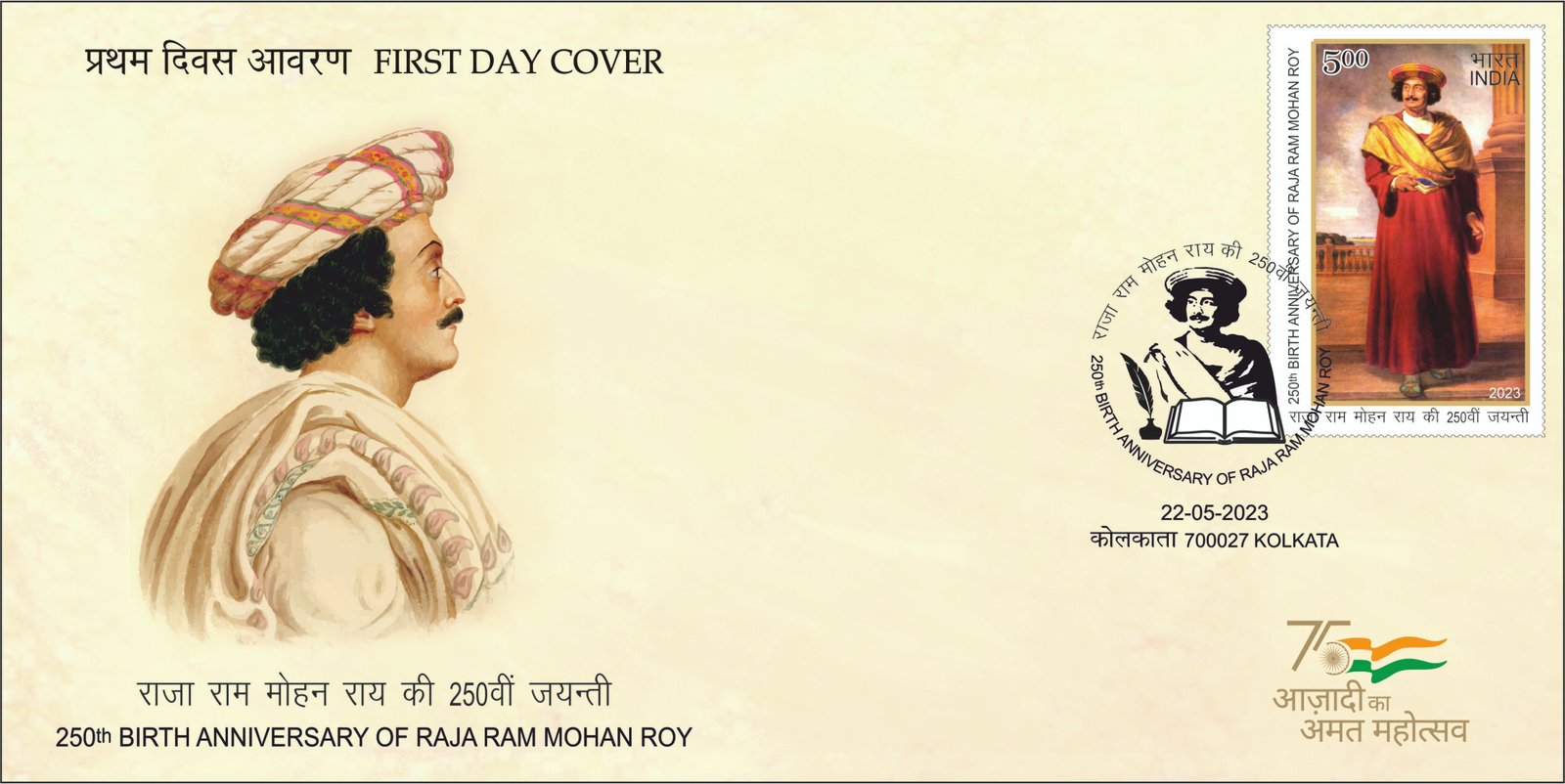250th Birth Anniversary of Raja Ram Mohan Roy

Technical Data
| Date of Issue | May 22, 2023 |
|---|---|
| Denomination | Rs. 5 |
| Quantity | 201,600 |
| Perforation | 14½ |
| Printer | Security Printing Press, Hyderabad |
| Printing Process | Wet Offset |
| Watermark | No Watermark |
| Colors | Multicolor |
| Credit (Designed By) | Sh. Sankha Samanta |
| Catalog Codes |
Yvert et Tellier IN 3552 Stanley Gibbons IN 3856 Colnect codes IN 2023.05.22-01 Michel IN 3893 |
| Themes | Anniversaries and Jubilees | Famous people | Historians | Men | Reformers |
Raja Ram Mohan Roy was born on 22 May 1772 in Radhanagar, Hooghly district of West Bengal. He was one of the founders of the Brahmo Sabha in 1828. His influence was apparent in the fields of politics, public administration, education and religion. He was known for his efforts to abolish the practices of sati and child marriage and is considered to be the “Father of the Bengal Renaissance” by many historians
Raja Ram Mohan Roy’s impact on modern Indian history was on account of efforts for revival of the pure and ethical principles of the Vedanta school of philosophy, as found in the Upanishads. He preached the unity of God, made early translations of Vedic scriptures into English, co-founded the Calcutta Unitarian Society and founded the Brahmo Samaj.
The Brahmo Samaj played a major role in reforming and modernizing the Indian society. He successfully campaigned against sati, the practice of burning widows. He endeavored to integrate Western culture with the best features of his own country’s traditions. He established a number of schools to popularize a modern system (effectively replacing Sanskrit based education with English based education) of education in India. He promoted a rational, ethical, non-authoritarian, this-worldly, and social reform Hinduism.
His writings also sparked interest among British and American Unitarians. During early rule of the East India Company, Ram Mohan Roy acted as a political agitator whilst employed by the East India Company.
Raja Ram Mohan Roy founded the Atmiya Sabha and the Unitarian Community to fight the social evils, and to propagate social and educational reforms in India. He was the man who fought against superstitions, a pioneer in Indian education and a trend setter in Bengali prose and Indian press. He crusaded against Hindu customs such as sati, polygamy, child marriage and the caste system, demanded property inheritance rights for women.
Roy’s political background and Devandra’s Christian influence influenced his social and religious views regarding reforms of Hinduism. He believed education to be an important tool for social reform. He also founded a number of educational institutions. He supported induction of western learning into Indian education. His most popular journal was the Sambad Kaumadi. It covered topics like freedom of the press, induction of Indians into high ranks of service and separation of the executive and judiciary. He died on 27 September 1833 at the age of 61 years.
First Day Cover

